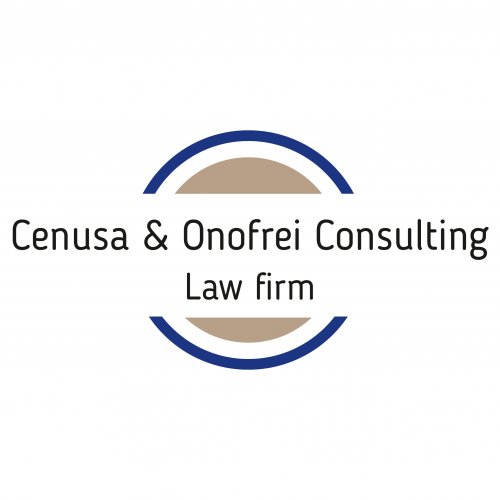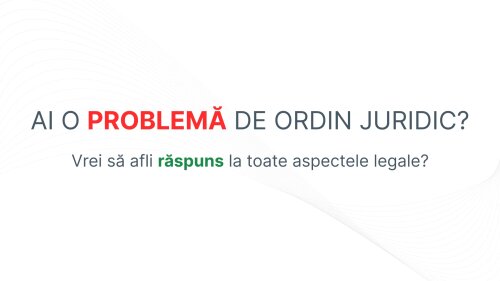Best Employment & Labor Lawyers in Republic of Moldova
Share your needs with us, get contacted by law firms.
Free. Takes 2 min.
Or refine your search by selecting a city:
List of the best lawyers in Republic of Moldova
About Employment & Labor Law in Republic of Moldova
The Employment & Labor Law in the Republic of Moldova is designed to regulate the rights and obligations of both employers and employees. This legal framework ensures fair treatment in the workplace, safe working conditions, and equitable compensation. Moldovan labor law is governed by the Labor Code, which outlines standards for employment contracts, working hours, leave entitlements, and dispute resolution processes. The primary aim is to foster a fair and productive working environment while safeguarding the interests of the workforce.
Why You May Need a Lawyer
Legal assistance in Employment & Labor is often required in several situations, including:
- Disputes over employment contracts or termination.
- Cases of workplace discrimination or harassment.
- Issues related to wages, benefits, or working conditions.
- Understanding compliance with labor laws for businesses.
- Representation in court or mediation settings for labor disputes.
- Advice on employee rights during restructuring or downsizing.
Local Laws Overview
The labor laws in the Republic of Moldova are comprehensive and cover multiple aspects of employment. Some key points include:
- Employment Contracts: Must be written and include essential terms such as job description, salary, working hours, and duration.
- Working Hours: Regular working hours should not exceed 40 hours per week. Overtime is limited and must be compensated.
- Leave Entitlements: Employees are entitled to annual paid leave, maternity leave, and other types of leave as specified by law.
- Minimum Wage: The government sets minimum wage levels which must be adhered to by employers.
- Termination and Dismissal: Employees must be provided with fair notice and justification for dismissals, with rights to challenge improper dismissals.
- Health and Safety: Employers are required to ensure a safe working environment and adhere to health standards.
Frequently Asked Questions
What are my rights if I am unfairly dismissed?
If you believe you've been unfairly dismissed, you can challenge the decision through the courts or seek mediation. Compensation or reinstatement may be available if unfair dismissal is proven.
How is overtime paid in the Republic of Moldova?
Overtime must be paid at a rate not less than 150% of the normal hourly wage. Alternatively, employees could receive compensatory rest.
What constitutes workplace harassment?
Workplace harassment includes any unwanted behavior that creates a hostile work environment, this can be verbal, physical, or via digital communication.
Can an employer change my employment contract?
Significant changes to an employment contract require the employee's consent unless specified otherwise in the initial terms or by law.
How are disputes generally resolved?
Labor disputes can be addressed through negotiation, mediation, or by legal action through labor courts if necessary.
What is the procedure for reporting discrimination at work?
Report cases to your employer as per internal policies, or to labor inspection authorities. You may need legal assistance to file a formal complaint.
Are non-compete clauses enforceable?
Non-compete clauses are allowed but must be reasonable in scope, duration, and geographic limitation to be enforceable.
What are the rules on employee privacy?
Privacy of employees must be respected. Monitoring of employees, if necessary, must be justified and legally compliant.
Am I entitled to paid maternity leave?
Yes, you are entitled to maternity leave with benefits as stipulated by Moldovan labor laws.
Can I be forced to work on public holidays?
Work on public holidays is generally voluntary unless a specific exception applies, and must be compensated at a higher rate.
Additional Resources
For more information, consider the following resources:
- Ministry of Labor and Social Protection: Offers official guidelines and regulations
- Labor Inspection Office: Handles workplace complaints and ensures compliance.
- National Trade Unions: Provides support and advocacy for worker rights.
Next Steps
If you require legal assistance in employment and labor matters, consider the following steps:
- Consult an employment lawyer to evaluate your case.
- Gather all relevant documents such as contracts, correspondence, and evidence related to your issue.
- Contact local legal aid societies if you need free or low-cost legal help.
- Explore alternative dispute resolution options like mediation to resolve disputes amicably.
Lawzana helps you find the best lawyers and law firms in Republic of Moldova through a curated and pre-screened list of qualified legal professionals. Our platform offers rankings and detailed profiles of attorneys and law firms, allowing you to compare based on practice areas, including Employment & Labor, experience, and client feedback.
Each profile includes a description of the firm's areas of practice, client reviews, team members and partners, year of establishment, spoken languages, office locations, contact information, social media presence, and any published articles or resources. Most firms on our platform speak English and are experienced in both local and international legal matters.
Get a quote from top-rated law firms in Republic of Moldova — quickly, securely, and without unnecessary hassle.
Disclaimer:
The information provided on this page is for general informational purposes only and does not constitute legal advice. While we strive to ensure the accuracy and relevance of the content, legal information may change over time, and interpretations of the law can vary. You should always consult with a qualified legal professional for advice specific to your situation.
We disclaim all liability for actions taken or not taken based on the content of this page. If you believe any information is incorrect or outdated, please contact us, and we will review and update it where appropriate.
Browse employment & labor law firms by service in Republic of Moldova
Republic of Moldova Attorneys in related practice areas.
Browse employment & labor law firms by city in Republic of Moldova
Refine your search by selecting a city.
















